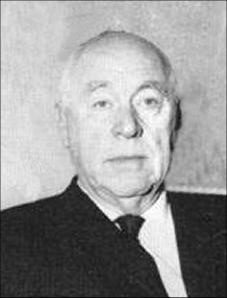He embarked with the 3rd Battalion for France on 13th August 1914, with which he served until wounded at Richebourg St. Vaast on 16th October of that year. He subsequently held varied appointments as A.D.C. in India, G.S.O. III at the War Office, Brigade Major and Adjutant of the Madras Guards.
After a period of service with the 2nd Battalion Worcestershire Regiment in Malta and Shanghai and 1st Battalion at Aldershot, he was appointed Commanding Officer of the Regimental Depot at Norton Barracks, from November 1937 to 1941.
Lieut.-Colonel Melville-Lee was C.O. at Norton Barracks at the time of Dunkirk, when thousands of survivors were being distributed to every camp in England. Several times he was alerted to expect contingents of several hundred men at a time to arrive at the little Norton Station where they were met by the remnants of the Regimental Band and played to Norton Barracks where they were fed, clothed, paid and given a week's leave. The number swelled to several thousands over a period of a few days and there was a great demand for razor blades which were unobtainable at a week-end. Colonel Lee was always a hustler, and immediately got hold of the Manager of Woolworths to open his shop to supply all he had, at the same time inviting the local Bank Manager to foot the bill, who observed that he was honoured at being asked for a sum of which there were no funds!

Lieut.-Colonel R. H. Melville-Lee
The following Sunday morning the salute was taken by Brigadier Jack Smythe, V.C., who had accompanied some of the men from Dunkirk.
On the completion of his command of "The Depot" (later called I.T.C.), he was appointed A.A. and Q.M.G. of the District and then A.Q.M.G. Headquarters Western Command, until he retired in 1944. He had lived for the last I I years in Malta.
He was made an O.B.E. and was also an Officer of the Order of St. John of Jerusalem. Rupert Lee was possessed of very great administrative ability and of an inventive mind. He will be remembered by those who served with him in Malta for his introduction of an electrically operated Tombola, the proceeds of which were channelled back into P.R.I. Funds and for his production of amateur Theatrical plays. He started the London system of bookkeeping in the Regimental accounts. He took a great interest in photography and used this means to record for identification the Mess Silver. He invented the Lee light for the firing of the Vickers machine gun by night.
Lieut.-Colonel Melville-Lee died at home in Malta in 1975.
He always took a great pride in the Regiment and latterly was the Regimental representative in Malta. Brigadier Graves-Morris represented the Regiment at his funeral on 1st May.